Lou Vincent: Life ban for self-confessed cheat
- Published
Lou Vincent: I am a cheat
Former New Zealand batsman Lou Vincent has been banned from cricket worldwide for life after admitting match-fixing.
Shortly before his punishment was announced, he said in a statement: "My name is Lou Vincent and I am a cheat.
"I have shamed my country. I have shamed my sport. I have shamed those close to me. For that I am not proud."
The 35-year-old cannot play, coach or participate in organised cricket after breaching 18 anti-corruption rules in matches played in 2008 and 2011.
Lou Vincent factfile | |
|---|---|
Born Auckland, November, 1978 | |
Century on Test debut November, 2001 against Australia | |
23 Test caps for New Zealand, scoring 1332 runs at an average of 34.15 | |
102 one-day internationals, scoring 2,413 runs at an average of 27.11 | |
County cricket for Lancashire, Northamptonshire, Sussex, Worcestershire |
The ban has been imposed by the England and Wales Cricket Board and applies to matches sanctioned by the ECB, the International Cricket Council or any other national cricket federation.
In his statement, Vincent added: "I have abused my position as a professional sportsman on a number of occasions by choosing to accept money through fixing.
"I have lived with this dark secret for many years, but just months ago I reached the point where I decided I had to come forward and tell the truth."
Vincent, who played 23 Tests and 102 one-day internationals for New Zealand between 2001-2007, appeared in county cricket in England for Sussex, Lancashire, Northamptonshire and Worcestershire.
The Auckland-born player has admitted to match-fixing offences in two domestic Twenty20 games involving Lancashire - one while playing for the Red Rose against Durham in June 2008, when he scored just one run, and another in opposition for Sussex in 2011.
That 2011 match was a quarter-final and Vincent was caught behind first ball off Sajid Mahmood. The third match under scrutiny was a CB40 fixture in which he played for Sussex against Kent and was run out.
Vincent has accepted the life ban from all forms of cricket.
ECB chief executive David Collier said the investigation had been "complex" and required close collaboration with other cricket boards, their own anti-corruption unit and the ICC.
"We are extremely pleased that an individual who repeatedly sought to involve others in corrupt activity for his own personal gain has accepted his conduct warrants a lifetime ban from cricket," said Collier.
"It once again highlights our resolve to keep cricket clean and rid the game of the tiny minority who seek to undermine the sport's integrity. "

"I have abused my position as a professional sportsman by choosing to accept money through fixing," said Vincent in a statement
Vincent, who retired from international cricket to become a Twenty20 specialist playing in India, South Africa, Zimbabwe, Bangladesh, England and New Zealand, is also reported to have provided evidence to the ICC of fixing involving 12 matches around the world between 2008 and 2012.
ICC chief executive David Richardson welcomed the ban and said it "should send out a loud and clear message to all those who indulge in corrupt practices and think they can get away with it.
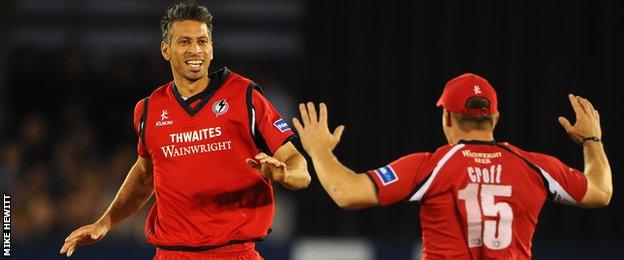
Lancashire bowler Sajid Mahmood celebrates taking Vincent's wicket in one of the games in question
"These unscrupulous corruptors and small group of greedy individuals should not be permitted to destroy the game for the overwhelming majority who play the game as they should, and the fans across the world."
Vincent's former Sussex team-mate, Naveed Arif, was also banned for life last month after admitting similar corruption offences.
Sussex County Cricket Club chief executive Zac Toumazi said: "We have co-operated fully with the ECB's anti-corruption unit and welcome the sanction imposed.
"We are determined to do all we can to drive this issue away from our game and remain vigilant and committed in doing so. It is critical that we understand that this was the behaviour of individuals and not the club."
A Lancashire County Cricket Club spokesperson added: "We welcome the verdict which clearly sends out a strong message to those who seek to threaten the integrity of our game."
- Published1 July 2014
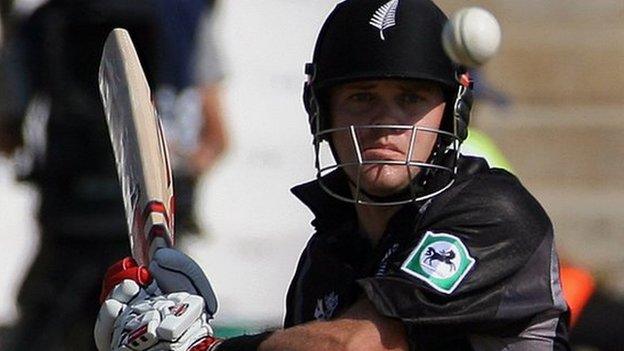
- Published1 July 2014
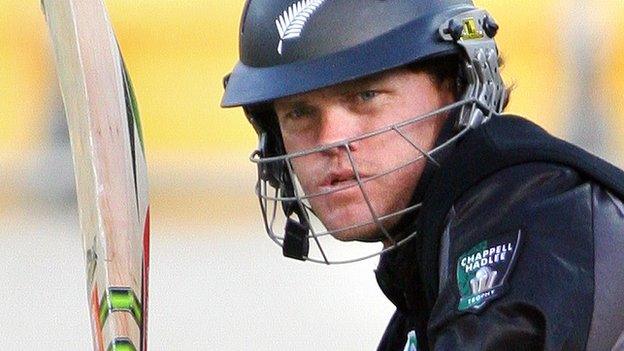
- Published27 May 2014
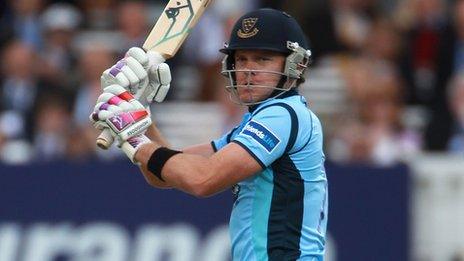
- Published22 May 2014
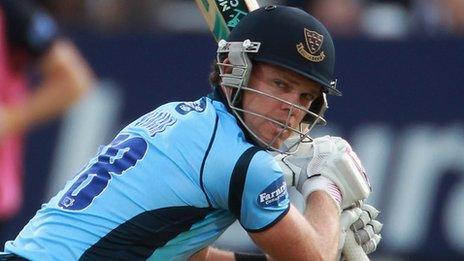
- Published16 May 2014
- Published18 October 2019
